Sustainable Development Goals courses at ATU
Atlantic Technological University Lecturer Dr John Scahill, who has created an informative, accredited short course around Sustainable Development Goals, says employers and industries are now increasingly seeking to align their practices with SDGs.
As society strives to realise the objectives set out by the United Nations Sustainable Development Agenda by 2030, ATU is playing its part by delivering short, accredited courses to assist organisations, businesses and individuals to meet their targets.
In September 2015, the UN, as part of the 2030 Agenda for Sustainable Development, set out 17 Sustainable Development Goals (SDGs), covering an array of subjects from poverty to climate change, and this was embraced by all 193 UN member states, including Ireland.
The 2030 Agenda provides a shared blueprint for peace and prosperity for people and the planet, now and into the future. To this end, ATU offers four online micro-credentials – namely SDGs & Partnership, SDGs & People, SDGs & Prosperity and SDGs & Planet – to assist those looking to build SDGs into their organisation, industry or, indeed, daily life.
Each module is worth five credits and for those who successfully complete all four modules (20 credits), they will be awarded a Level 6 Certificate in SDGs Partnership People Planet and Prosperity.
Students can also undertake a 10 credit Special Purpose Award (SPA) in the SDGs – Partnership & People, Partnership & Planet and Partnership & Prosperity – or do a single module for five credits.
Each module articulates the aims and purpose of the SDG theme it focuses on and outlines the application of the theme in a regional context. In addition, each module demonstrates the inter-relationships between the SDGs and advocates the SDGs relevance and application in an applied setting.

Senior lecturer and researcher Dr John Scahill, who created the four modules under the Higher Education 4.0 Project, notes the programme was founded in response to the Human Capital Initiative (HCI) Pillar 3 call to develop courses focusing on present and future skills that students and people require.
“In addition to core skills, sustainability awareness and knowledge of the SDGs are skills that all students will need going forward,” says Dr Scahill.
“The Corporate Social Responsibility Directive is bringing a clear focus on the Sustainability agenda and awareness is something that employers are increasingly looking for now, in addition to the fact that we need it from an environmental point of view as well.
“Sustainability is important in any strategic plan – and sustainability is important in higher education. We have a national strategy for Education for Sustainable Development, and this is a way to directly respond to some of the calls to increase sustainability education in the HE section,” he adds.
As noted, the three main pillars are people, planet and prosperity, with Dr Scahill articulating that “partnership, then, is the glue that allows that all to happen”.
He continues: “We would recommend that course participants do the Partnership module first, because it introduces the whole concept of sustainability, its history and sustainability terminology, along with climate change, science and the sustainable development goals and how they operate.”
The programme, which is 100% percent online, was first run in January 2023, with further intakes in September 2023 and January 2024. The closing date for the next intake is August 16. While the fee for each module is €350, course participants can avail of an 80% HCI subsidy which reduces the fee to €70 per module.
Earlier this year, a report entitled ‘Measuring Progress: Sustainable Progress Index 2024’ – written by Prof. Charles M.A Clarke, St John’s University, New York; Dr Catherine Kavanagh, University College Cork; and John McGeady, Social Justice Ireland – was published and it ranked Ireland eighth out of 14 comparable EU countries.
The report stated: “At the midpoint of the implementation of the 2030 Agenda, a reality check reveals significant challenges are still evident in meeting some of the environment goals.
“The SDGs call on all nations to combine economic prosperity, social inclusion, and environmental sustainability. The analysis shows that while Ireland has made some progress, enormous challenges remain.”
These findings are not lost on Dr Scahill. He says: “The SDGs are important global targets. There is increasing interest in industry in aligning practices with the SDGs – and that is everywhere.
“Everywhere you look there are people exploring sustainability and aligning it in their area. So, having a qualification in the SDGs helps with that.”
To find out more about ATU’s SDGs programme, and other courses, check out www.atu.ie/flexible/micro-credentials or click below.






